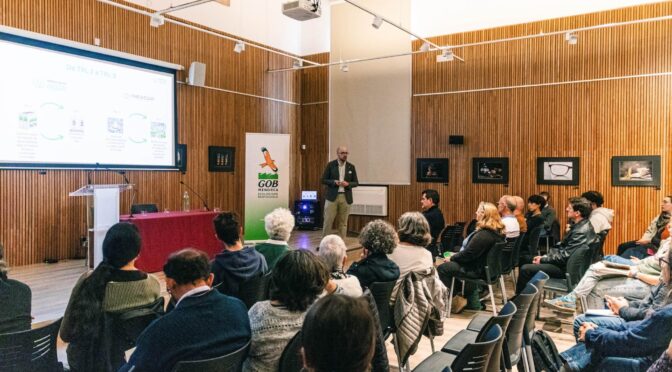Views: 1150
Developing a more efficient and sustainable marine economy is becoming possible with new regenerative approaches. Last Saturday, a workshop in Maó explored these innovative ideas.
Ignasi Gairin, a researcher at the Institute of Agrifood Research and Technology (IRTA), provided the scientific, social, and economic context behind these trends. The challenges are stark: 70% of commercial fish species are overexploited, rising temperatures are affecting aquaculture like mussel farming, and increasing energy costs demand a reevaluation of current models.
At IRTA, researchers are investigating new ways to feed humanity by identifying optimal areas for aquaculture and selecting the most suitable species. These approaches move away from traditional fish farms, such as tuna farming, which require unsustainable feed conversion rates—producing 1 kg of tuna often consumes 10 to 20 kg of other fish.
The goal now is truly circular systems. The focus is on lower trophic-level fish species that feed on algae and nutrients in the water. Waste produced by these fish is then used to cultivate microalgae, which in turn supports shellfish farming.
Alejandro Simon, a senior aquaculture technician and co-founder of the company Mediterraneal Algae, discussed private-sector initiatives. His company’s primary focus is creating cosmetic products from microalgae. Other projects use algae for bioremediation, such as reducing water pollution by capturing nitrates, phosphates, and even heavy metals from port waters. Balancing production diversification with profitability is essential from a business perspective.
The event took place at Maó’s Claustre del Carme and attracted a diverse audience, including fishers, shellfish farmers, public administration representatives, biologists, and other interested individuals who engaged in lively discussions after the presentations.
The workshop was organized by GOB Menorca in collaboration with the Marilles Foundation, Menorca Preservation, the Balearic Port Authority, and the Island Council of Menorca.

